Product Description
As the demand keeps growing for well-trained staff to provide high-quality memory care, those experienced in the Best Friends™ approach to dementia care have the required skills and confidence to deliver optimal care and succeed in this challenging caregiving role.
With this book, memory care programs can develop a “dementia capable” staff in nursing homes, assisted living facilities, dedicated memory care, adult day settings, and anywhere people with dementia are served. It features engaging training ideas and exercises for use in stand-up meetings, full in-services, and staff onboarding. The acclaimed authors provide practical guidance for helping staff achieve better outcomes and enjoy more rewarding experiences, which supports staff retention. Filled with examples from care communities that are successfully practicing this life-affirming approach, The Best Friends Staff provides inspiration and tools to transform your workplace and its culture of care.
WHAT’S NEW: All the contents are updated and revised for the needs of today’s practitioners, including:
- All-new, chapter-by-chapter Tool Kits containing learning activities, downloadable handouts, and programming advice
- A “Field Notes” section featuring advice from experienced Best Friends practitioners
- Revised stories and examples reflecting contemporary settings and issues
- Increased focus on staff recruitment, development, and retention
WHY BEST FRIENDS?
- The concept of friendship is easy for staff to understand and apply in daily care
- Relationships play an essential role in dementia care by fostering respect, empathy, support, trust, and humor
- Using this care model helps everything go better by knowing the history and preferences of each person, by communicating skillfully, and by providing a supportive environment with meaningful engagement
DID YOU KNOW?
The Best Friends™ approach to dementia care is an internationally acclaimed, person-centered program adopted by caregivers all over the world! Discover all the ways Best Friends can benefit your residents and programming through an array of products and services.
- Learn more about Best Friends products
- Learn more about Best Friends Introductory Training
- Learn more about Best Friends Master Trainer Certification
- Learn more about Best Friends Customized Training
For more information on Best Friends™ products and services, visit bestfriends.healthpropress.com.

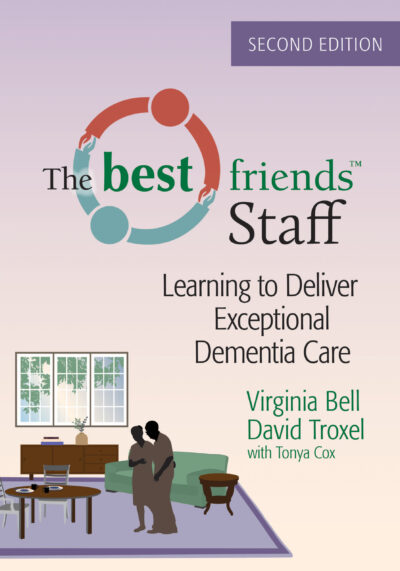
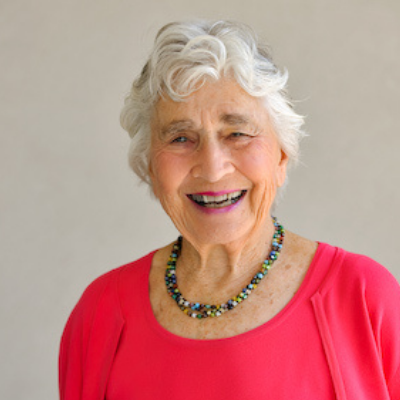 Virginia Bell, M.S.W., was one of the most influential thought leaders in the field of dementia care over the last four decades, who continued right up to the time of her passing in 2023 to improve the lives of people with dementia and their caregivers. Her Best Friends™ model of dementia care transforms attitudes in care institutions and among families about a debilitating disease. An author, speaker, and advocate, her work has profoundly influenced the lives of untold individuals, and her Best Friends approach to dementia care continues to be adopted world-wide by care programs.
She lectured widely on Alzheimer’s disease at national and international conferences, speaking at the National Education Conferences of the Alzheimer’s Association and lecturing at the conferences of Alzheimer’s Disease International. She has published journal articles and book chapters, notably in Dementia Care: Patient, Family and Community (John Hopkins, 1989). Many of her articles have been reprinted numerous times: “The Alzheimer’s Disease Bill of Rights” (1994), “The Other Face of Alzheimer’s Disease” (1999) and “Spirituality and the Person with Dementia” (2001), co-authored with David Troxel and published in the American Journal of Alzheimer’s Disease and in Alzheimer’s Care Quarterly. She has also co-authored six books with David Troxel, beginning with The Best Friends Approach to Alzheimer’s Care. She received her M.S.W. from the University of Kentucky in 1982.
Virginia Bell, M.S.W., was one of the most influential thought leaders in the field of dementia care over the last four decades, who continued right up to the time of her passing in 2023 to improve the lives of people with dementia and their caregivers. Her Best Friends™ model of dementia care transforms attitudes in care institutions and among families about a debilitating disease. An author, speaker, and advocate, her work has profoundly influenced the lives of untold individuals, and her Best Friends approach to dementia care continues to be adopted world-wide by care programs.
She lectured widely on Alzheimer’s disease at national and international conferences, speaking at the National Education Conferences of the Alzheimer’s Association and lecturing at the conferences of Alzheimer’s Disease International. She has published journal articles and book chapters, notably in Dementia Care: Patient, Family and Community (John Hopkins, 1989). Many of her articles have been reprinted numerous times: “The Alzheimer’s Disease Bill of Rights” (1994), “The Other Face of Alzheimer’s Disease” (1999) and “Spirituality and the Person with Dementia” (2001), co-authored with David Troxel and published in the American Journal of Alzheimer’s Disease and in Alzheimer’s Care Quarterly. She has also co-authored six books with David Troxel, beginning with The Best Friends Approach to Alzheimer’s Care. She received her M.S.W. from the University of Kentucky in 1982. Based in northern California, David Troxel, M.P.H., is nationally and internationally known for his expertise in the fields of dementia & long-term care. He has co-authored (with Virginia Bell) six influential books, including his newest book, and written numerous articles relating to dementia care and staff development and training. He is a writer, trainer, and long-term care consultant who has spoken at over 500 conferences including keynote presentations at various U.S., Canadian, and international conferences. He served for a decade as the Executive Director of the Santa Barbara (California) Alzheimer’s Association (1994-2004). He also helped support his mother, Dorothy, in her 10-year journey living with Alzheimer’s disease. David’s areas of expertise include best care practices for persons with dementia, caregiver support, staff training, and long-term care program development. More information about David’s work can be found on his website at
Based in northern California, David Troxel, M.P.H., is nationally and internationally known for his expertise in the fields of dementia & long-term care. He has co-authored (with Virginia Bell) six influential books, including his newest book, and written numerous articles relating to dementia care and staff development and training. He is a writer, trainer, and long-term care consultant who has spoken at over 500 conferences including keynote presentations at various U.S., Canadian, and international conferences. He served for a decade as the Executive Director of the Santa Barbara (California) Alzheimer’s Association (1994-2004). He also helped support his mother, Dorothy, in her 10-year journey living with Alzheimer’s disease. David’s areas of expertise include best care practices for persons with dementia, caregiver support, staff training, and long-term care program development. More information about David’s work can be found on his website at 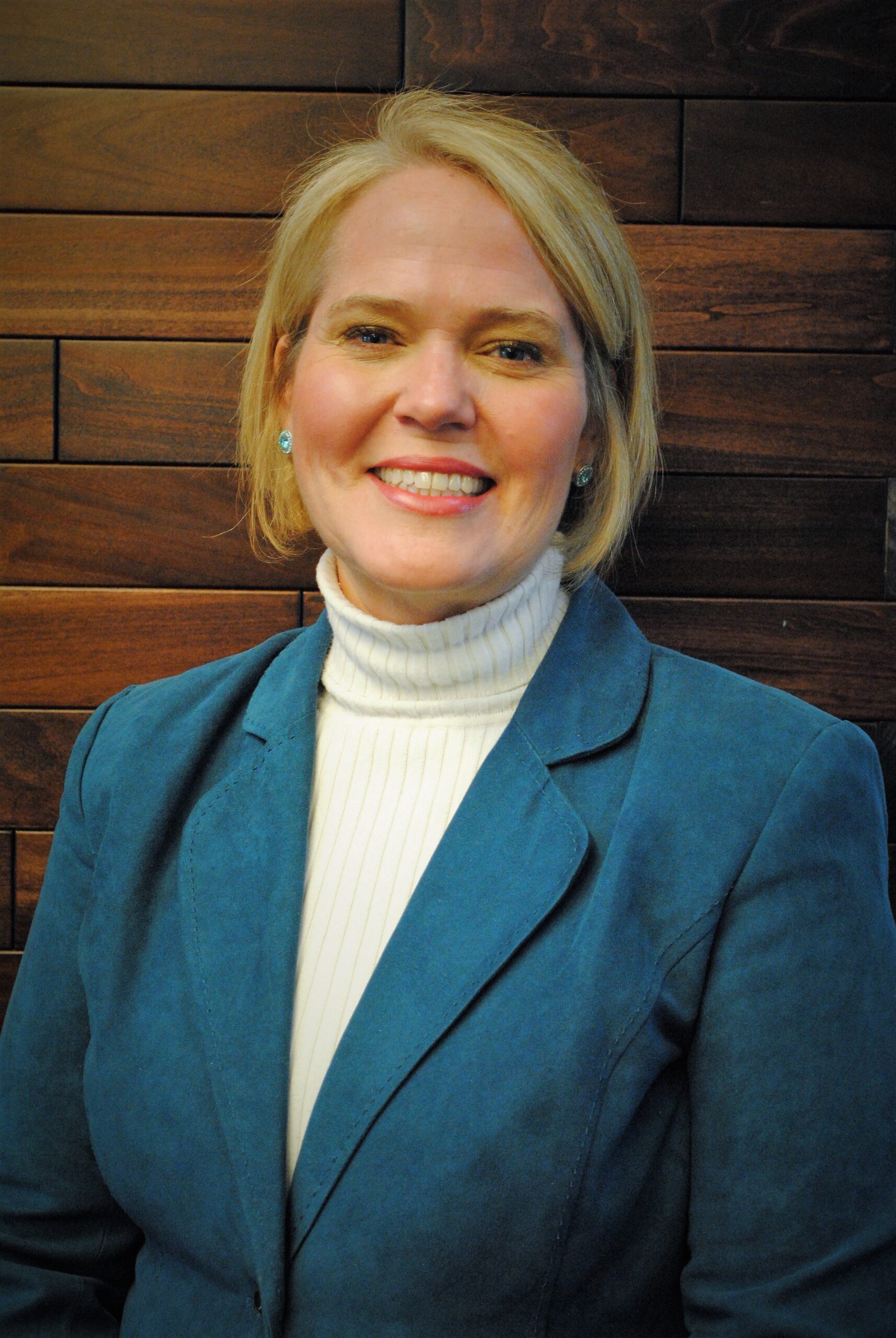 With a long history of supporting Best Friends™ approaches in dementia care, Tonya M. Cox, M.S.W., L.N.H.A., currently ensures that training and implementation of Best Friends™ practices are maintained across all care settings for the regional Kentucky-based operator Christian Care Communities in her role as Vice President of Operations. She notably blended the Best Friends approach into a Green House® site as the former Executive Director for The Homeplace at Midway. And before that was Director of Community Based Services for Christian Care, which included overseeing the original Best Friends™ Adult Day Center in Lexington, Kentucky. For more than 15 years Tonya has been developing programs and services for persons with dementia and their caregivers, including working on national curriculum development for professional caregivers in various care settings and serving as Vice President for Mission and Service for the Greater Kentucky/Southern Indiana Chapter of the Alzheimer’s Association. Tonya presents locally and nationally on activity programming and dementia care. She is a co-author on three of the Best Friends™ books, and contributed to The Best Friends Approach to Dementia Care, Second Edition, with Virginia Bell and David Troxel. She has served as co-chair of the Kentucky Alzheimer’s Disease Advisory Council and is a practicum supervisor for both the University of Kentucky and the University of Louisville Kent School of Social Work. Tonya is also Adjunct Professor at Midway University in their Health Care Administration Program.
With a long history of supporting Best Friends™ approaches in dementia care, Tonya M. Cox, M.S.W., L.N.H.A., currently ensures that training and implementation of Best Friends™ practices are maintained across all care settings for the regional Kentucky-based operator Christian Care Communities in her role as Vice President of Operations. She notably blended the Best Friends approach into a Green House® site as the former Executive Director for The Homeplace at Midway. And before that was Director of Community Based Services for Christian Care, which included overseeing the original Best Friends™ Adult Day Center in Lexington, Kentucky. For more than 15 years Tonya has been developing programs and services for persons with dementia and their caregivers, including working on national curriculum development for professional caregivers in various care settings and serving as Vice President for Mission and Service for the Greater Kentucky/Southern Indiana Chapter of the Alzheimer’s Association. Tonya presents locally and nationally on activity programming and dementia care. She is a co-author on three of the Best Friends™ books, and contributed to The Best Friends Approach to Dementia Care, Second Edition, with Virginia Bell and David Troxel. She has served as co-chair of the Kentucky Alzheimer’s Disease Advisory Council and is a practicum supervisor for both the University of Kentucky and the University of Louisville Kent School of Social Work. Tonya is also Adjunct Professor at Midway University in their Health Care Administration Program.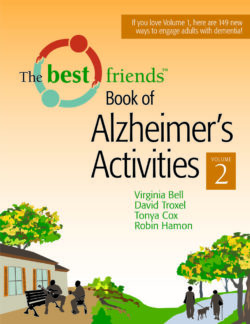
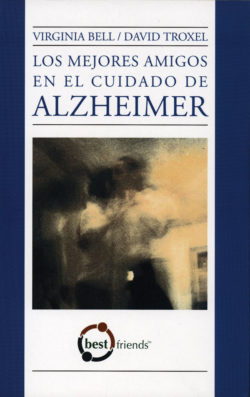
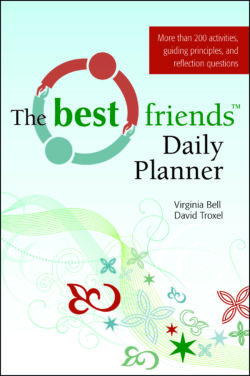
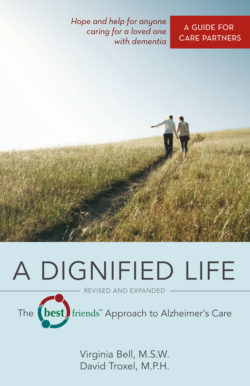
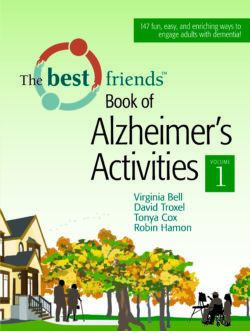
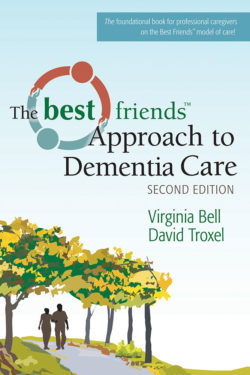
Kaitlin Konecke –
“The Best Friends approach was my single best training tool as a young leader in senior living and provided me with a solid foundation and better understanding of our residents with memory impairment.”
—Terry Ervin, Vice President of Operations, Clairmont Management Group
Kaitlin Konecke –
“From its humble beginnings as the Best Friends Adult Day Center in a church in Lexington, Kentucky, the Best Friends method continues to be highly influential as an innovative and sensitive approach to the care for those with dementia and this book deserves a prominent place in the library of anyone in the field. I first came into contact with this approach during my own visit to the Adult Day Center in the 1990’s and it has influenced and informed my entire approach and career since that time. The authors, David Troxel, Tonya Cox, and the late Virginia Bell are all leaders in the field and we as a community are richer for the opportunity to learn from them.”
—Greg Cooper, MD, Ph.D, FAAN, Chief of Adult Neurology, Director, Memory Center, Norton Neuroscience Institute, Norton Healthcare
Kaitlin Konecke –
“Essential reading for all of us dealing with today’s staffing challenges. This book offers practical ideas and strategies for recruiting, training, and retaining staff who exemplify person-centered care at its best.”
—Heather Tussing, CDP, CADDCT, President, The Aspenwood Company
Kaitlin Konecke –
“An indispensable resource for companies seeking to establish an exceptional dementia care program.”
–Tom Cullen, CEO, Community Care Options, Chico, CA
Kaitlin Konecke –
“Like a new and improved vintage wine, this second edition of The Best Friends™ Staff is full of flavors that will suit the palate of anyone interested in implementing this proven approach to dementia care. David Troxel and the late, great Virginia Bell have again harvested the best ideas to produce loads of helpful ideas to improve the quality of care for those living with dementia.”
—Daniel Kuhn, MSW, Author of Alzheimer’s Early Stages: First Steps for Family, Friends, and Caregivers
Kaitlin Konecke –
“This book is a wonderful tool to empower staff working in the dementia field! Not only do these tips increase understanding of the disease, but they show how to build relationships among staff and those they care about, for a better connection and better care!”
—April L. Stauffer, MS, UK Sanders-Brown Center on Aging
Kaitlin Konecke –
“The Best Friend’s approach to dementia care is one of my go-to tools for helping families and staff provide the best, most compassionate care to those living with dementia. What may initially seem like common sense—being a best friend to those with dementia—turns out to be a stroke of genius. The authors have successfully captured the essence of being a best friend to someone with dementia and have created helpful, impactful tools, content, and culture change documents. If I ever develop dementia, I sincerely hope those around me will come to my aid, partner with me, and support me just as a best friend would.”
—Elizabeth Edgerly, Ph.D., Senior Director Care and Support, Alzheimer’s Association
Kaitlin Konecke –
“Visitors who tour our Center come away highly motivated as they witness this model in action—watching leaders, staff, volunteers, and participants, engaged in and focused on building a sustainable culture of care using the best qualities of friendship.”
—Mary Lynn Spalding, President and CEO, Christian Care Communities
Kaitlin Konecke –
“As a person living with dementia, I believe it is crucial for frontline carers to have the knowledge and skills to provide expert dementia care. This resource offers a comprehensive, contemporary approach to the development of effective person-centered training programs which will achieve this.”
—William Yeates, M.Ed., M. Arts., B. Pharm., Lived Experience Associate Consultant, Dementia Support Australia